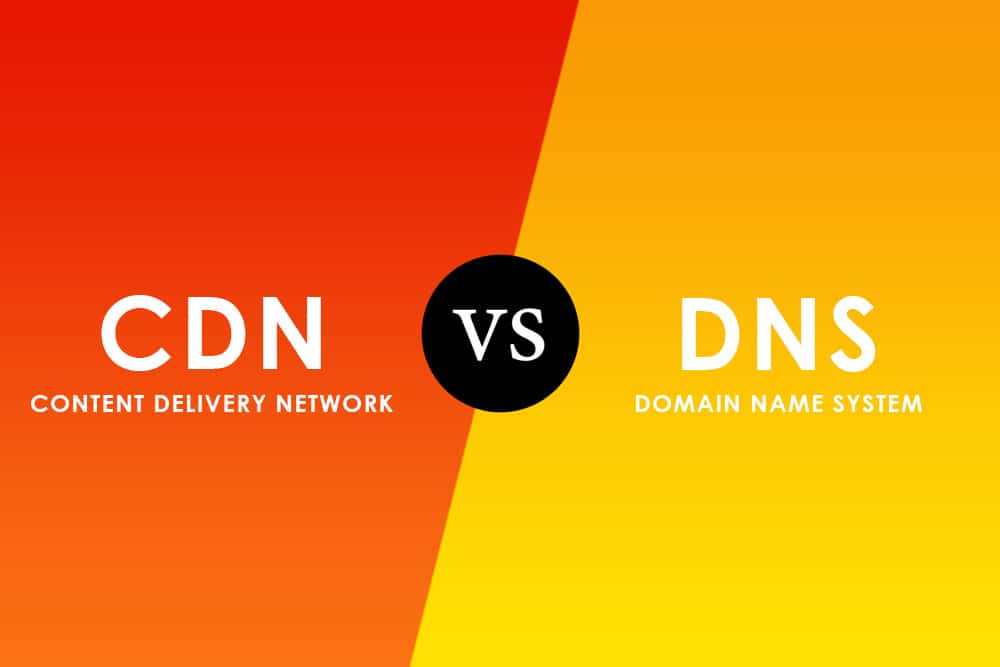
DISCLOSURE: This post may contain affiliate links, meaning when you click the links and make a purchase, we receive a commission.
The internet is a vast place brimmed with loads of information. But have you ever wondered how it is possible that whenever you go on to your browser and search for something, you’re shown thousands of results in just a matter of seconds? To answer your question shortly, it is because of services such as DNS and CDN.
So what are CDN and DNS, and how do they make our life easier while searching for stuff on the internet? Dive in as we’ll explain everything we know about both of them, so you have a better understanding of how these two work.
What Are CDN And DNS
A content delivery network (CDN) is a distributed server system that delivers web content to a user based on their geographic location. The goal of a CDN is to serve content to end-users with high availability and high performance. CDNs also provide a layer of security, shielding the origin server from large surges in traffic.
On the other hand, a Domain Name System (DNS) is a hierarchical decentralized naming system for computers, services, or any resource connected to the internet or a private network.
It is used to translate human-readable domain names into numerical IP addresses. DNS is also used to locate computers and services on the internet and is an essential part of the internet’s infrastructure.
CDN vs DNS
Why Do People Confuse Both
People confuse CDN with DNS because they sound similar, and they both play a role in how websites are accessed online.
CDNs are used to speed up website loading times by caching and delivering content from geographically distributed servers, while DNS (Domain Name System) is used to translate domain names into IP addresses so that a website can be located.
How Does CDN Work With DNS
Content Delivery Networks (CDNs) are integral to most modern web applications. They provide a way to deliver content to users quickly and efficiently by storing a copy of the content on servers located around the world (also called caching).
This ensures that users can access the content quickly, regardless of where they are located. CDN functionality relies heavily on Domain Name System (DNS) records.
DNS records are the directory that maps a domain name to its associated IP address. When a user attempts to access a website, their browser first checks the DNS records to determine the IP address associated with the domain name. The browser then connects to the IP address to download the content.
CDNs work by providing their own DNS records. These records are configured to direct browsers to the IP address of the server that is closest to the user. This ensures that the content is loaded from the server that is closest to the user, minimizing latency and improving performance.
The CDN also works in reverse. When a user attempts to access content from the CDN, their browser will first check the CDN’s DNS records. If the content is not already stored on the closest server, the browser will be directed to the server that is closest to the user.
What Would Happen If CDN And DNS Didn’t Exist
If Content Delivery Networks (CDNs) and Domain Name Systems (DNSs) didn’t exist, the internet would be a much different place. Most people rely on these two technologies to access websites, so their absence would have a major impact on how we use the internet today.
Without CDN
Without CDNs, website load times would suffer significantly. This is because CDNs are responsible for caching webpages and content on servers around the world so that users can access websites more quickly based on their geographical location.
Websites would have to be hosted on a single server, which would mean that users would have to wait longer for webpages to load, especially if they are located far away from the server.
Without DNS
Without DNS, you wouldn’t be able to access websites by typing in a domain name and would have to go through the hassle of typing in the numerical IP address of each website you wanted to visit. This would become extremely difficult for everyone, where you’d have to memorize each and every website’s IP address.
Conclusion
DNS and CDN are essential components of the internet infrastructure. They provide stability, speed, and reliability to ensure that web pages can be accessed quickly and securely.
DNS and CDN are becoming increasingly important in today’s digital world as more and more people rely on the internet for their everyday needs.


